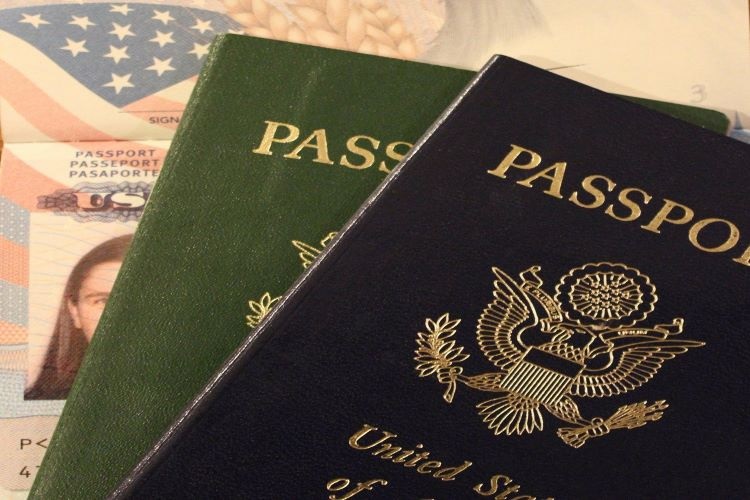Green Card Process: Simplified Steps for Permanent Residency in the U.S
As we navigate the complex world of immigration, understanding the green card process is essential for those who desire to become permanent residents in the United States. Obtaining a green card allows an individual the right to live and work in the country on a permanent basis, offering the stability and opportunity to build a life in the United States. However, the process can be intricate and often requires the completion of multiple forms, interviews, and background checks, all of which must be done through the United States Citizenship and Immigration Services (USCIS).
To begin the green card process, one must first determine their eligibility for permanent residency. Eligibility can be based on various factors such as family relationships to US citizens or permanent residents, employment opportunities, refugee or asylum status, and more. Once eligibility has been established, the appropriate forms and supporting documentation must be submitted to the USCIS, which play a crucial role in determining the outcome of the application.
Throughout the application process, it is important to stay informed and up-to-date on any changes or updates to immigration policies that may affect the success of one’s green card application. Patience, persistence, and compliance with the requirements set forth by the USCIS are key in ensuring a smooth and successful journey towards permanent residency in the United States. Learn more about green card process
Green Card Eligibility and Application
Determining Eligibility
To begin the process of obtaining a permanent resident card (also known as a green card), you must first determine your eligibility category. The eligibility criteria for obtaining a green card can be broadly categorized into three groups:
- Family-Based
- Employment-Based
- Other Types
We will discuss each category in more detail below.
Application Process Overview
The application process for a green card involves two primary steps:
- Filing an immigrant petition: A family member, employer, or you, depending on the eligibility category, must file the immigrant petition. This can be done via Form I-130, Form I-140, Form I-360 or Form I-526.
- Applying for the green card: Once the petition is approved, you can either apply for the green card through adjustment of status if you are already in the U.S., or through consular processing if you are outside the U.S.
The exact documents, forms, and fees required will vary based on your specific eligibility category, as well as whether you are applying via adjustment of status or consular processing. Remember to take into account the need for a medical exam and a sponsor if required.
Family-Based Green Cards
Family-based green cards are available for eligible family members of U.S. citizens or lawful permanent residents. These include:
- Spouses
- Children (unmarried and under 21)
- Parents (if the U.S. citizen is 21 or older)
- Siblings (if the U.S. citizen is 21 or older)
In certain cases, widows and widowers of U.S. citizens may also be eligible for a green card.
Employment-Based Green Cards
Employment-based green cards are issued to individuals who qualify under one of the following categories:
- Priority workers: Individuals with extraordinary ability in the sciences, arts, education, business, or athletics; outstanding professors and researchers; multinational executives and managers.
- Professionals with advanced degrees or exceptional ability: Professionals who hold advanced degrees or have exceptional ability in the sciences, arts, or business.
- Skilled, unskilled, and professional workers: Workers with at least two years of experience, those with less than two years of experience, and professionals with a U.S. bachelor’s degree or a foreign equivalent.
- Special immigrants: Religious workers, media professionals, and employees of international organizations, among others.
- Investors: Individuals who invest at least $1 million (or $500,000 in targeted employment areas) in a new commercial enterprise that creates at least 10 full-time jobs for U.S. workers.
Other Types of Green Cards
In addition to family-based and employment-based categories, there are a few other ways to obtain a green card. These include:
- Special immigrants: This category includes religious workers, former U.S. government employees, and other specific groups.
- Refugee/Asylee: If you have been granted refugee or asylee status within the past year, you may be eligible to become a lawful permanent resident.
- Victim of abuse: Individuals who have suffered significant harm as a result of abuse by a U.S. citizen or permanent resident family member may be eligible for a green card.
- Registry: If you have been living in the U.S. since January 1, 1972, and meet certain requirements, you may be able to apply for a green card via registry.
In summary, there are various pathways to obtain a green card, depending on your eligibility category. Ensure you follow the correct application process, prepare the necessary forms and documents, and involve a sponsor if required.
After Filing For A Green Card
Biometrics and Interview
After filing the appropriate forms for an employment-based, family-based green card, or diversity visa, the next step in the process involves biometrics and an interview. The U.S. Department of State schedules a biometrics appointment for applicants, where they will provide fingerprint samples, photographs, and have their signatures recorded. This data is crucial for conducting background checks and verifying the applicant’s identity. We will also receive notification of the green card interview date, which is conducted by the U.S. Citizenship and Immigration Services (USCIS).
During the green card interview, applicants must provide additional documentation to support their application, answer questions about their background, and demonstrate their eligibility as per the U.S. immigration law. U.S. citizens sponsoring family-based green card applications may also need to attend the interview.
Visa Availability and Adjustment
The U.S. Department of State assigns priority dates based on the type of green card application submitted, such as employment-based, family-based, or diversity visa lottery. Applicants can monitor their priority date using the Visa Bulletin published monthly by the Department of State. Once the priority date becomes current, applicants can file Form I-485 for an adjustment of status.
The applicant and their qualifying children (if any) must be present in the United States to file Form I-485. It is crucial to comply with the USCIS policy manual while filing for an adjustment of status, as any discrepancies may lead to denial or delays in processing.
Rights and Responsibilities
Upon obtaining permanent resident status, individuals have certain rights and responsibilities. They may live and work in the United States without restrictions and are eligible for certain government benefits. Moreover, they may request authorization for their children to attend public schools and, in certain cases, are entitled to sponsor family members for immigration purposes.
However, permanent residents must also comply with U.S. immigration law, including filing tax returns, maintaining proper documentation, and avoiding involvement in criminal activities. Violating any of these conditions may lead to termination of permanent resident status or deportation.
Maintaining Permanent Resident Status
It is essential to take necessary precautions to maintain permanent resident status. This includes, but is not limited to:
- Employment: Obtaining and maintaining stable employment, as required by the U.S. Department of State for maintaining one’s green card.
- Travel: Understanding the limitations on duration and frequency of travel outside the United States, as per U.S. immigration law.
- Public Charge: Ensuring self-sufficiency, as reliance on public benefits for more than 12 months in any 36-month period may lead to a public charge determination and place one’s green card at risk.
By adhering to these guidelines, applicants can successfully maintain their permanent resident status and preserve their rights as green card holders.




